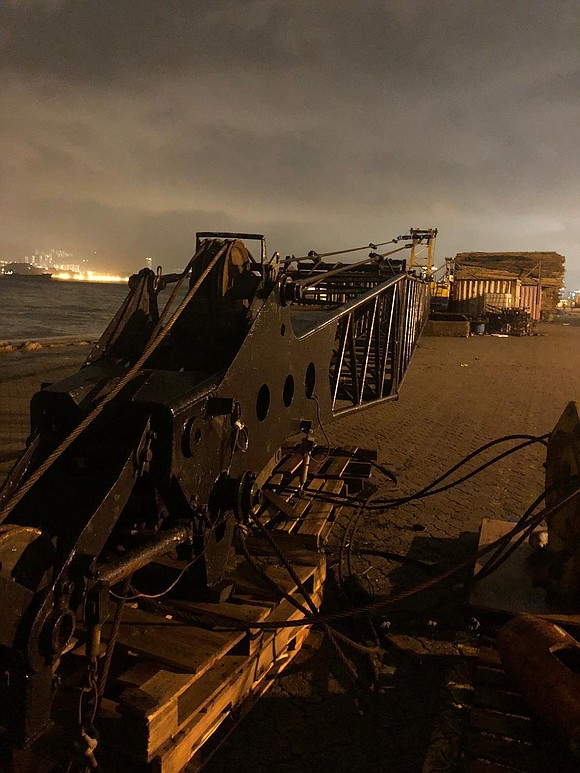Typhoon Mangkhut hits mainland China, lashes Hong Kong, dozens dead in Philippines
CNN/Stylemagazine.com Newswire | 9/17/2018, 10:07 a.m.
By Sheena McKenzie and Joshua Berlinger, CNN
(CNN) -- The world's strongest storm this year, Typhoon Mangkhut, continued its path of destruction across Southeast Asia over the weekend, reaching mainland China on Sunday afternoon after pummeling Hong Kong and killing dozens in the Philippines.
The storm has carved a deadly trail across the region, killing two people in southern China and at least 54 people in the Philippines. Many of the Philippines' deaths were caused by landslides, with dozens more still believed to be buried beneath the deluge, government officials said at a news conference Sunday.
More than 2.45 million people have been evacuated in China's Guangdong province as Mangkhut made landfall at 5 p.m. local time, according to Chinese state media.
Xinhua reported that 18,327 emergency shelters had been activated, and that 632 tourism and 29,611 construction sites had been shut down.
As Mangkhut marched toward the Chinese mainland, Hong Kong was also buffeted by fierce winds that tore off roofs, downed trees and caused cranes perched atop half-built skyscrapers to swing ominously.
Hong Kong's weather observatory issued its highest storm warning alert -- a signal T10 -- and the normally bustling city was all but shut down as transport was suspended and torrential rain flooded roads and buildings.
Winds of 173 kilometers per hour (107 miles per hour) and gusts of up to 223 kph (138 mph) were reported, stronger than Hurricane Florence that hit North Carolina over the weekend. There were no reported deaths in Hong Kong, a city well prepared for tropical cyclones.
Airports in Shenzhen, a technology hub across the border from Hong Kong, and on the resort island of Hainan also canceled all flights, according to Chinese state media.
Mangkhut is now expected to move inland of western Guangdong. While the storm has weakened, a T8 warning was still in place into Sunday evening -- meaning that winds with speeds of about 63 kph were expected.
Philippines toll set to rise
The Philippines remains the worst hit, with more than 250,000 people affected by the storm across the country -- around half of those seeking shelter in evacuation centers in the country's north.
When Mangkhut made landfall in the Philippines Saturday morning at 1:40 a.m. local time, the storm was already packing winds of up to 270 kph (165 mph).
While the death toll is currently 54, with 32 people injured and 42 more missing, this is likely to rise in the coming days as rescue teams work to locate 36 people believed to be buried beneath landslides in the Cordillera Administrative Region, in the north of Luzon island.
As of Saturday, the storm had caused 51 landslides in the north of the Philippines.
The most severe damage came in Luzon's north, a sparsely populated region that's considered the breadbasket of the Philippines, although areas as far away as Manila -- more than 340 km (200 miles) from the eye of the storm -- were hit with heavy rains that caused flooding in urban areas.
The country is no stranger to tropical cyclones -- more than 6,000 people died when Super Typhoon Yolanda hit the Philippines five years ago, the worst in a generation. That storm displaced nearly 4 million people.
Sunday: Hong Kong lashed
Mangkhut is expected to be one for Hong Kong's record books. It's only the 15th time in the last 60 years that a storm has been classified as T10; the last was for Super Typhoon Hato last year.
Along the coast, the gambling enclave of Macau closed all its casinos, and all fishing boats from China's Guangdong province were called into port.
Hong Kong's famed Victoria Harbor was also hit with a storm surge of more than 3.9 meters (12.8 feet) above chart datum on Sunday. More than 550 flights at airports in Hong Kong, Shenzhen and Guangzhou were also canceled, according to Flightaware.com.
Hong Kong authorities had been warning residents to prepare for the storm for days, and on Saturday, grocery stores were packed with people stocking up on goods. Buildings across the city were either boarded up or had their windows taped in order to mitigate the damage of broken glass.
Other cities around the Pearl River Delta -- which includes Hong Kong, Guangzhou, Shenzhen, Zhuhai and Macau -- were also on high alert.
Mangkhut was still expected to bring heavy rain to Hong Kong, with flood warnings in place for low-lying areas.




